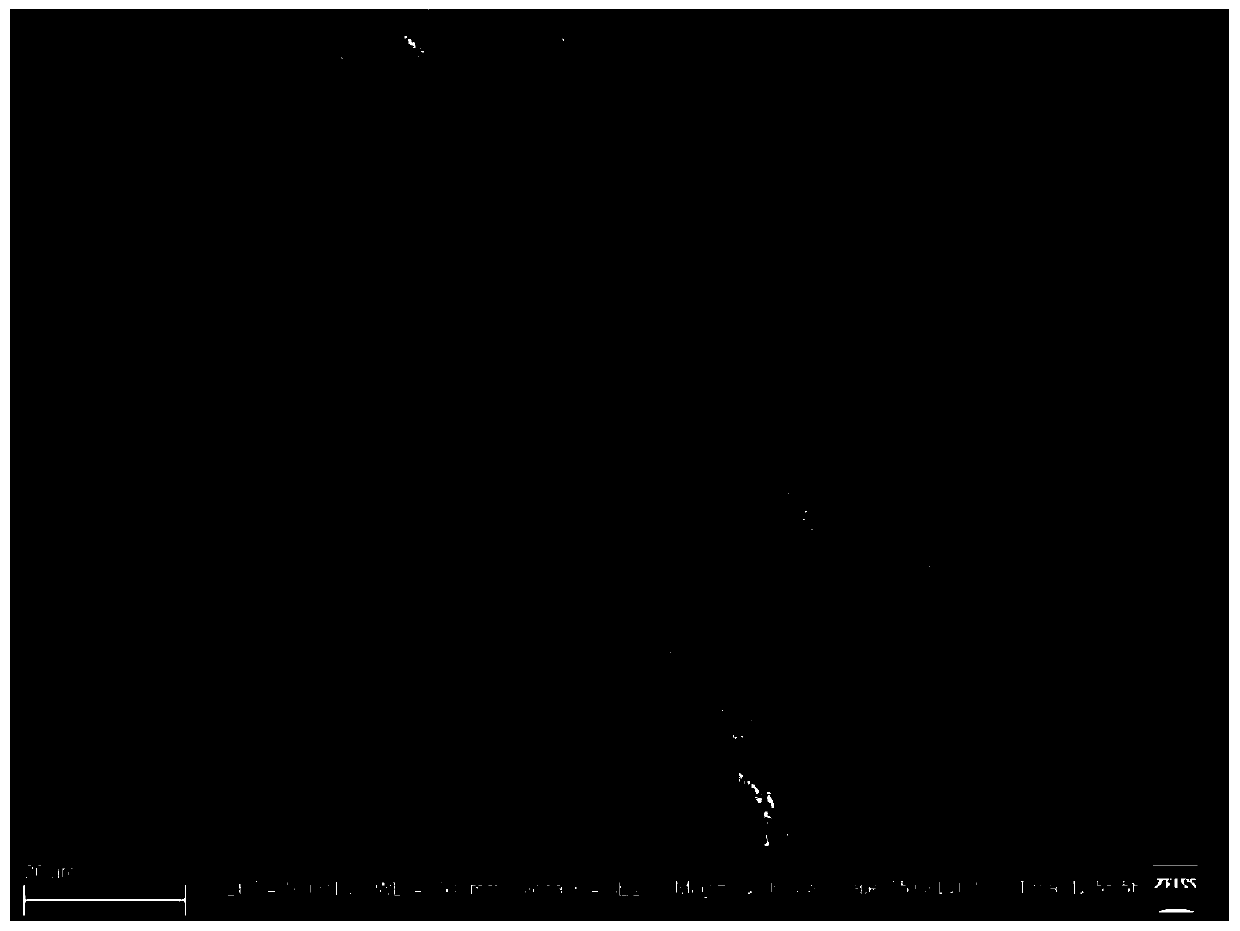Fe3C-containing hollow composite carbon fiber with carbon nanotubes growing on inner and outer surfaces and preparation method of Fe3C-containing hollow composite carbon fiber
A technology of compounding carbon fibers and carbon nanotubes, applied in the directions of carbon fiber, fiber processing, fiber chemical characteristics, etc., can solve problems such as poor electromagnetic shielding efficiency, and achieve the effect of enhancing dielectric loss
- Summary
- Abstract
- Description
- Claims
- Application Information
AI Technical Summary
Problems solved by technology
Method used
Image
Examples
specific Embodiment approach 1
[0026] Specific implementation mode one: the inner and outer surfaces of the present embodiment grow carbon nanotubes containing Fe 3 The hollow composite carbon fiber of C, its structure is based on the magnetic Fe 3 The carbonized fiber hollow tube of the C nanoparticle is used as a carrier, and carbon nanotubes are grown on the inner and outer surfaces of the hollow tube.
specific Embodiment approach 2
[0027] Specific implementation mode two: the inner and outer surfaces of the present embodiment grow carbon nanotubes containing Fe 3 The preparation method of the hollow composite carbon fiber of C, carries out according to the following steps:
[0028] 1. Preparation of Fe 3 o 4 -PAN / PMMA hollow fiber:
[0029] a. Fe 3 o 4 Nanoparticles dispersed in DMSO to obtain Fe 3 o 4 Nanoparticle dispersion; adding polyacrylonitrile to DMSO and heating to dissolve to obtain a polyacrylonitrile solution; adding Fe 3 o 4 mixing the nanoparticle dispersion with the polyacrylonitrile solution to obtain a mixed solution; evaporating part of the solvent under reduced pressure to obtain a shell solution;
[0030] B, prepare the DMSO solution of polymethyl methacrylate (PMMA), obtain core layer solution;
[0031] c. Using DMSO aqueous solution as the coagulation bath, pass the core solution into the central cavity of the dual-channel coaxial spinneret of the spinning machine, and pass...
specific Embodiment approach 3
[0038] Specific embodiment three: the difference between this embodiment and specific embodiment two is that the magnetic Fe in step one 3 o 4 The preparation method of nanoparticles is as follows: 1.35~2.7g FeCl 3 ·6H 2 O. Mix 3.6-7.2g of anhydrous sodium acetate, 0-1g of polyethylene glycol and 80ml of ethylene glycol, stir thoroughly with ultrasonic waves, put it into a polytetrafluoroethylene reactor, and react at 190-210°C for 8-10 hours. Then cleaned with ethanol and dried in a vacuum oven to obtain magnetic Fe 3 o 4 Nanoparticles. Others are the same as in the second embodiment.
PUM
 Login to View More
Login to View More Abstract
Description
Claims
Application Information
 Login to View More
Login to View More - R&D
- Intellectual Property
- Life Sciences
- Materials
- Tech Scout
- Unparalleled Data Quality
- Higher Quality Content
- 60% Fewer Hallucinations
Browse by: Latest US Patents, China's latest patents, Technical Efficacy Thesaurus, Application Domain, Technology Topic, Popular Technical Reports.
© 2025 PatSnap. All rights reserved.Legal|Privacy policy|Modern Slavery Act Transparency Statement|Sitemap|About US| Contact US: help@patsnap.com



